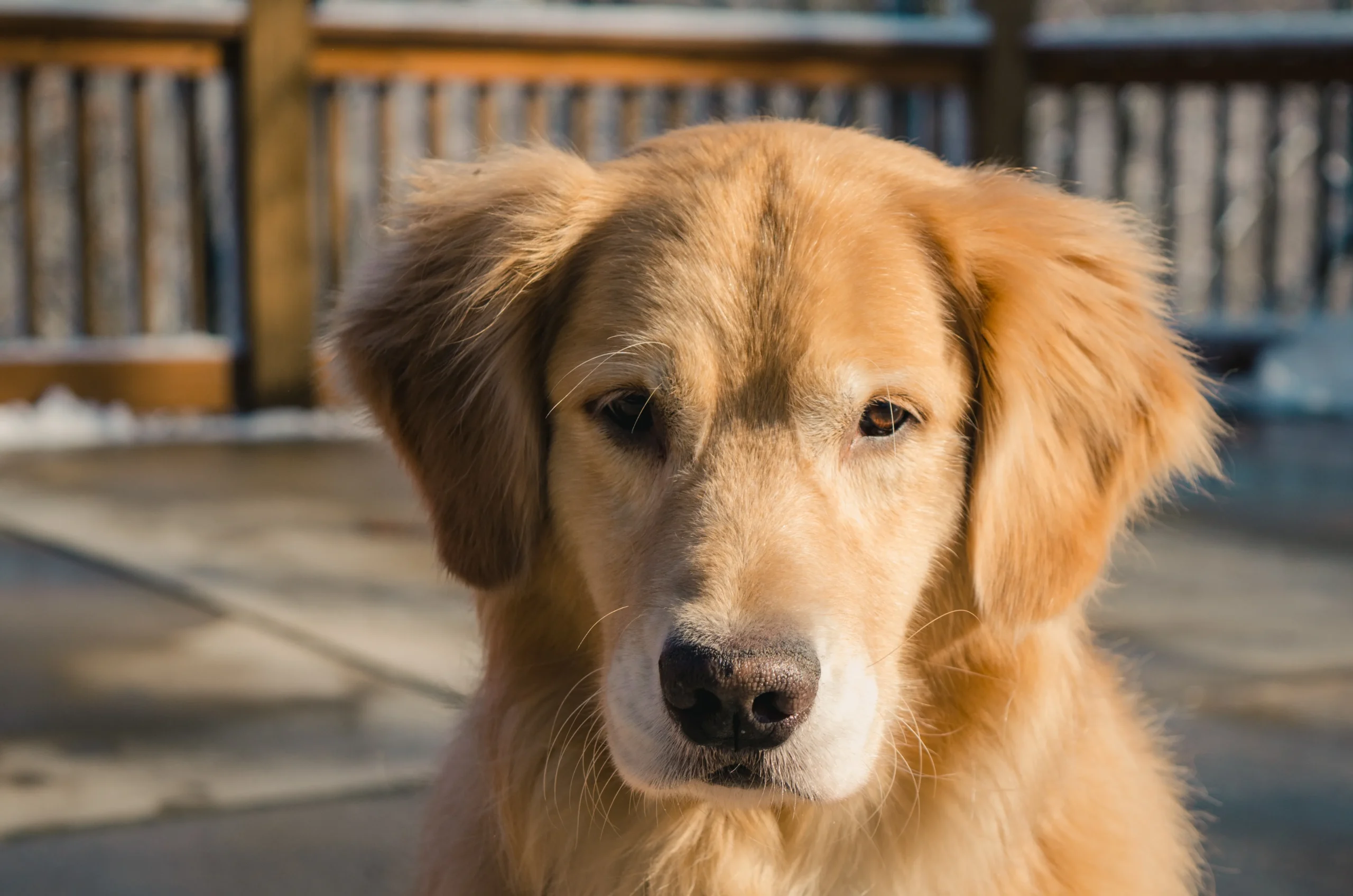Clearing the Air: Understanding the Truth Behind Golden Retrievers and Hypoallergenic Qualities
As a dog enthusiast who has worked with thousands of dogs through shelters and breeders, I understand the importance of finding a hypoallergenic dog breed for anyone who loves dogs but suffers from allergies.
Golden Retrievers are among the most popular dog breeds, but are they hypoallergenic? In this article, we will take a closer look at the truth behind Golden Retrievers and hypoallergenic qualities. We will also explore the factors that contribute to dog allergies, how to manage allergies around Golden Retrievers, alternative hypoallergenic dog breeds to consider, and overall understanding of hypoallergenic dog breeds.
If you’re a new Golden Retriever owner looking to understand more about hypoallergenic dog breeds, or just a dog lover searching for answers to the age-old question, “are Golden Retrievers hypoallergenic?” then keep reading!
Understanding Hypoallergenic Dog Breeds
As a seasoned dog expert who has worked with thousands of dogs through shelters and breeders, I can attest that hypoallergenic dog breeds are a popular choice for pet owners who suffer from allergies. However, when it comes to Golden Retrievers, the answer is not so clear-cut.
Golden Retrievers are not considered hypoallergenic by most experts in the field. This is because they shed their coat frequently and produce dander – both of which can trigger allergies in sensitive individuals. That being said, there may be some Golden Retriever hybrids or individual dogs that have lower levels of allergens than others.
It’s important to note that just because a dog breed is labeled as “hypoallergenic,” it doesn’t mean they won’t cause an allergic reaction in every person. Allergy sensitivity varies greatly between individuals and even among different breeds within the same family.
If you’re looking for a Golden Retriever but suffer from allergies, there are steps you can take to minimize your exposure to allergens. Regular grooming sessions and frequent baths can help reduce shedding and remove any trapped dander on your pup’s fur.
Additionally, investing in air purifiers or HEPA filters for your home can help reduce airborne allergen particles circulating throughout your living space.
At the end of the day though – if you’re unsure about whether or not owning a Golden Retriever will work out with regard to any allergy issues – consulting with an experienced vet would be wise before taking on such responsibility!
The Truth about Golden Retrievers and Their Hypoallergenic Qualities
Golden Retrievers are a beloved breed of dog known for their friendly and affectionate disposition. However, many people with allergies wonder if they are hypoallergenic.
The truth is that while Golden Retrievers do not shed excessively, they still produce dander and saliva which can trigger allergic reactions in some individuals. It is important for potential owners to understand this before bringing a Golden Retriever into their homes.
As someone who has worked with thousands of dogs through shelters and breeders, I have seen firsthand the disappointment that can come from realizing your beloved pet causes allergic reactions. However, there are steps that can be taken to minimize the impact on allergy sufferers.
Regular grooming and bathing can help reduce dander levels in the home. Additionally, investing in air purifiers or HEPA filters can help remove allergens from the air. It may also be helpful to limit access to certain areas of the home where allergens tend to accumulate such as bedrooms or furniture.
Ultimately, it is up to each individual owner whether owning a Golden Retriever is worth managing their allergies. But understanding this truth about hypoallergenic qualities should be considered before making any decisions about bringing one into your home as these affectionate dogs make wonderful pets for those without allergies!

Factors that contribute to allergies in dogs
« golden retriever rescue new mexico
golden retriever with blue eyes »
While golden retrievers are often touted as being hypoallergenic, the truth is that there is no such thing as a completely hypoallergenic dog breed. In fact, many factors contribute to dog allergies beyond just their breed.
One significant factor is the amount of shedding a dog does. Even if a golden retriever has hair instead of fur, they still shed dander and allergens into your home. This can cause allergic reactions in sensitive individuals.
Another factor to consider is how much time your new furry friend spends outside. Dogs that spend more time outdoors tend to bring back more pollen and other allergens on their coats and paws, exacerbating allergy symptoms for some people.
Additionally, it’s important to note that not all allergies are caused by fur or dander alone; some dogs may produce higher levels of saliva or urine proteins which can also trigger an allergic response in humans.
As someone who has worked with thousands of dogs through shelters and breeders alike, I always advise new dog owners – especially those looking for breeds marketed as “hypoallergenic” – to spend quality time around different types of dogs before committing to one specific pet. This will allow you to better understand any potential allergy concerns you may have before bringing home your new furry friend.
Ultimately, while no single factor guarantees an allergy-free experience with any given breed or individual animal, doing thorough research beforehand can help ensure both you and your pup live happily together for years to come!
Managing Allergies Around Golden Retrievers
Golden Retrievers are a popular breed of dog known for their friendly and gentle nature. However, many potential owners may be concerned with managing allergies around Golden Retrievers, as they are not hypoallergenic.
The first step in managing allergies around Golden Retrievers is to understand the root cause of the allergy. Allergies can be triggered by dander, saliva or urine from dogs which can make it harder to manage them. Some allergic reactions may range from mild symptoms such as sneezing and itching eyes to severe ones like difficulty breathing or anaphylaxis.
To mitigate these symptoms when living with a Golden Retriever one should ensure that proper grooming habits are established for their dog – Regular bathing and brushing will help reduce shedding thereby reducing allergens in your home environment.
Additionally, using air purifiers throughout your home can help remove airborne particles that trigger allergies including pollen and pet dander among others. It’s also important to wash beddings frequently since they tend to attract dust mites which could lead to an increase in allergy triggers.

While there is no cure for pet-related allergies; preventive measures such as those above have been seen over time work towards making life easier for both you and your furry friend!
Alternative, hypoallergenic dog breeds to consider
When it comes to choosing a hypoallergenic dog breed, many people automatically think of poodles or schnauzers. However, there are plenty of other options to consider for those who love dogs but suffer from allergies.
One alternative breed that is often overlooked is the Portuguese Water Dog. These intelligent and affectionate pups have a curly, non-shedding coat that makes them ideal for allergy sufferers. Plus, they were even the chosen breed for former President Obama’s family due to one member’s allergies.
Another option worth considering is the Soft Coated Wheaten Terrier. Despite their shaggy appearance, these dogs have hair instead of fur which means they don’t shed as much and produce less dander – making them an excellent choice for those with allergies.
For Golden Retriever owners specifically looking for a hypoallergenic option similar in temperament and size – look no further than the Irish Water Spaniel! They too were bred as water retrievers like Goldens so they share similar characteristics such as loyalty and intelligence but with their tight curls shedding will be far less frequent than Goldens!

While some may argue that no dog can truly be 100% hypoallergenic – it’s important to remember there are still plenty of breeds out there suitable enough if you’re willing put in effort into managing your lifestyle around your pup!
Conclusion
When it comes to hypoallergenic qualities, Golden Retrievers are a great breed. Though their coats and dander can cause allergies in some people, they’re not necessarily any worse than other non-hypoallergenic breeds. For those who love Golden Retrievers but don’t want to risk an allergy flare-up, there are alternative options that offer similar characteristics without the same risks of triggering pet allergies. If you’re considering adopting a dog and need help deciding which is right for you, seek out experienced advice from dog shelters or trusted breeders – they’ve worked with thousands of dogs over the years and will be able to help find your perfect match!







